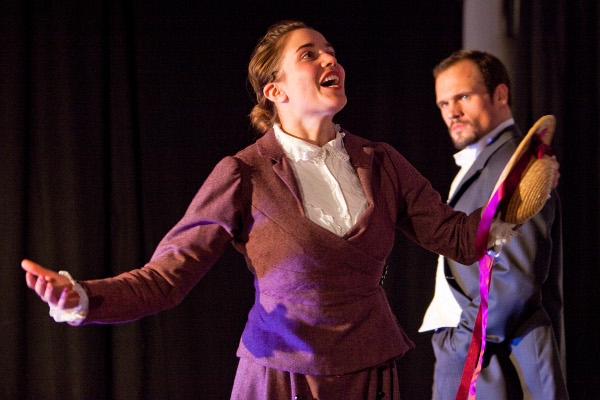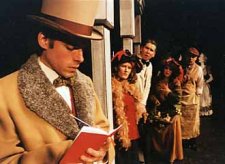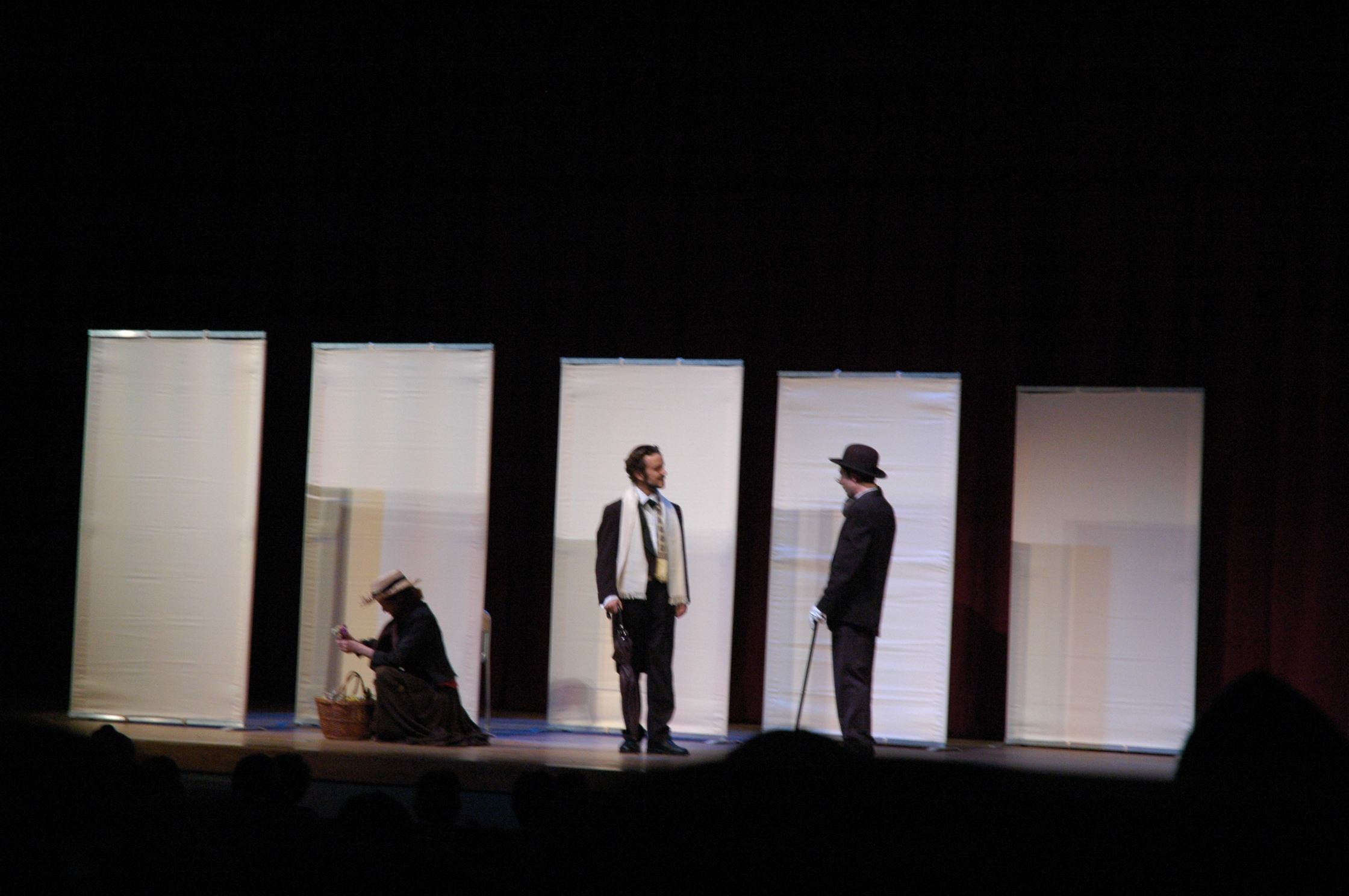Pygmalion by George Bernard Shaw
2010-2011 season
This production toured Poland, Belgium, Japan, Holland, Sweden, Germany, Austria and Switzerland from September 2010 to April 2011.
The Cast
| Gabrielle Douglas | Eliza Doolittle |
| James Franklin | Henry Higgins |
| Victoria Strachan | Mrs Pearce, Mrs Higgins, Bystander, Hostess |
| David Sayers | Colonel Pickering, Mrs Eynsford-Hill |
| Andrew Mathys | Freddie, Alfred Doolittle, Neppomuck |
| Peter Joucla | Director |
| Peter Case | Assistant Director |
| Roger Moon | Musical Arrangements |
| Nancy Betton | Costumes |
| Andy Nichols | Set Construction |
| Lizette Druka | Set Artwork |
| Special thanks to: | Delia Remy, Madeleine Bowyer |

2004-2005 season
1999-2000 season
Bernard Shaw's most famous comedy concerns itself with the advancement of Eliza Doolittle from flower girl to lady of society. As a result of a wager with Colonel Pickering, Professor Henry Higgins determines to free Eliza form her primitive background and turn her into a sophisticated woman. His task was not an easy one. Eliza is the illegitimate child of the trash collector Alfred Doolittle. She was born in poverty and cursed with a vulgar cockney dialect. Higgins patiently moulds a lady of the highest standing who finally exceeds all expectations, outdoing her teacher on occasion.
Higgins wins his bet but also loses control of his pupil. Though Higgins can teach Eliza all she needs to know about etiquette he misses the strength of the human character. This is about more than education and good manners, it is the ability to respect each others emotions.
When the play opened in London on 11th April 1914, it caused a great commotion because it dared to let a lady say 'bloody' on the stage. A critic from The Daily News and Leader wrote 'if you omit the swearing and the Dustman's audacious philosophy there is not much left. Pygmalion will probably be a success if only for the audacity in the use of naughty swearwords'. Ever the master of the letter, Shaw replied 'A word which is generally applied to Queen Mary Tudor should not be censored in a flower girl.'
Time has told that the play's lasting impact has nothing to do with the controversial language. Pygmalion addressed many contemporary issues that have lingered on into our society. Shaw said the play was about language and class. He believed passionately that people should not be discriminated against because of their birth, their environment or their accent.
Whilst I agree that it is a play about language, it also deals with other issues, particularly power, feminism and the nature of love. Of course Pygmalion is also a good story with strong, likeable characters. Some would argue that it is a love story written by accident. Shaw would be indignant at this preposterous suggestion. Even in 1914 audiences felt it natural for Eliza to marry Higgins. Alan Jay Lerner agreed and gave the audience the ending they so deeply desired, at the end of My Fair Lady the two do indeed get together. In his introduction to the musical, Lerner refers to Shaw's sequel to Pygmalion, in which Eliza ends not with Higgins but with Freddie. He writes 'Shaw and heaven forgive me! I am not certain he is right'.
I have kept faithfully to the original in this respect. However, in other areas I too must ask for forgiveness. The text has been somewhat reworked in order to tour it properly. I have also introduced music. For thirty years, Shaw resisted every pressure to degrade his play into a musical. I absolutely forbid any such outrage, he wrote in his ninety second year.
Shaw and heaven forgive me.
Peter Joucla, November 1998


